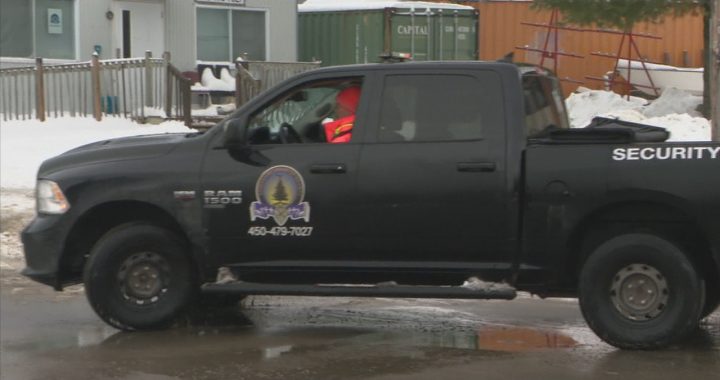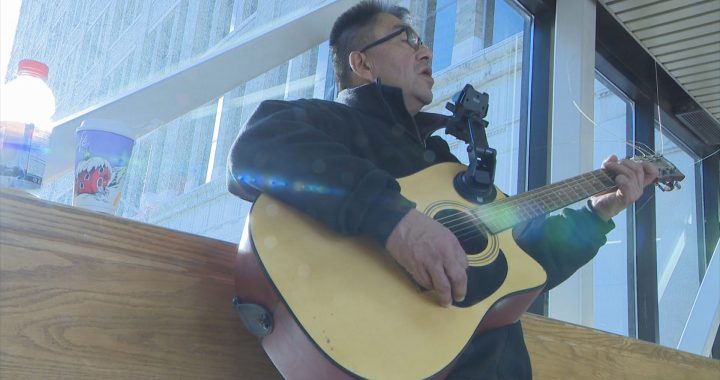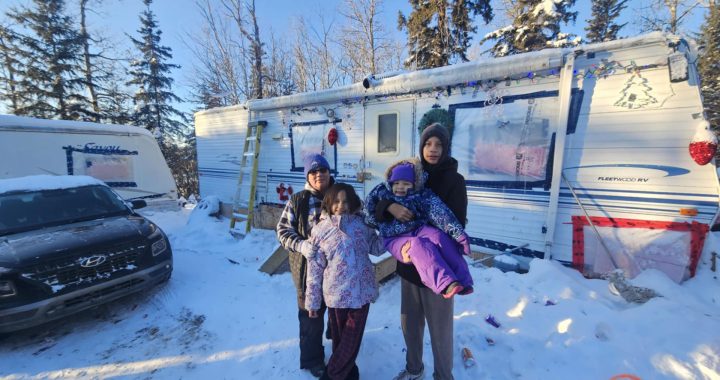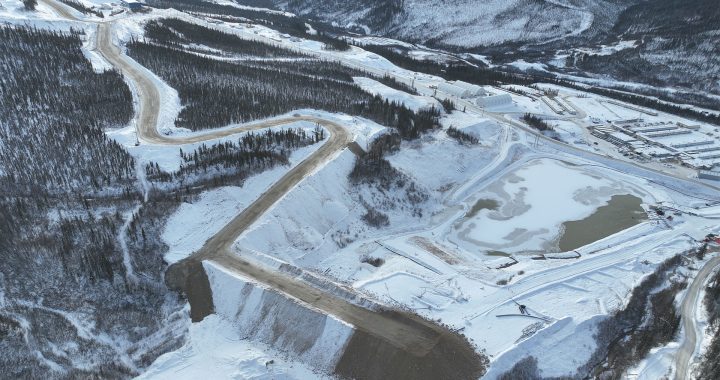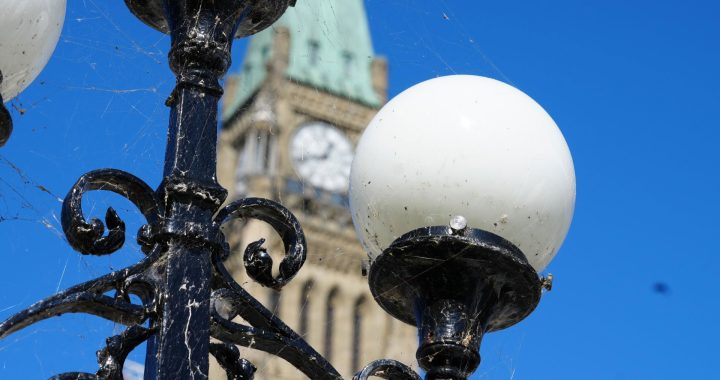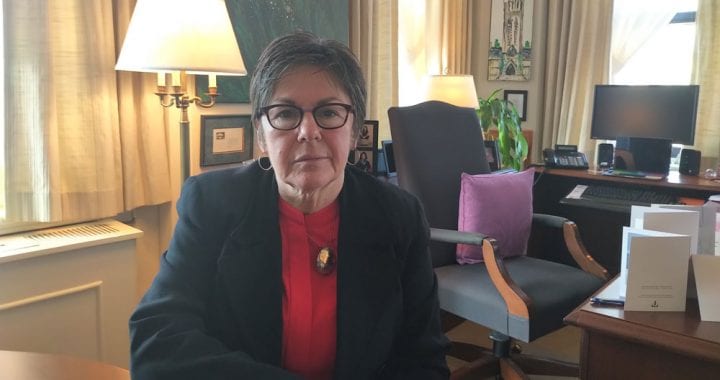Quebec government officials are expected to announce extended lockdown measures in the next 24 hours as case records are being shattered daily following a post-holiday surge.
On Tuesday, Quebec reported 2,508 new cases of COVID-19, along with 62 new deaths.
Hospitalizations rose to 1,317 – the highest number of patients in hospital with COVID-19 since late May.
Premier Francois Legault is scheduled to hold a press conference Wednesday evening with multiple media reports suggesting he plans to introduce a stricter lockdown – and possibly a curfew – in the province.
The second wave came down hard on Quebec, and some Indigenous communities are already struggling with its effects.
This week, the Montreal Indigenous Community Network put out an urgent call for relief workers to facilitate “Red Zone housing” for homeless Indigenous people who recently tested positive for the virus.
“Infection rates continue to increase: at this time, 80% of tests are coming back positive,” reads a letter addressed to the Network’s partners.
It’s estimated at least a dozen homeless people in Montreal are COVID-positive.
With nowhere to go, they gather outside, while at night the shelters are either filled to their limited capacity or turning clients with dependency issues away.
“If there was enough shelter, enough housing, enough roofs, a lot more people – a lot more of the street community, would be isolated,” Allison Reid of the Montreal Indigenous Community Network told CTV News.
In response, the city says it plans to add more isolation beds to its largest emergency facility.
“This enlarged red zone of the Royal Victoria [hospital] site will also include services adapted to the Aboriginal population,” a spokesperson for Mayor Valerie Plante’s office said in an emailed statement.
“We will continue to deploy the necessary means to support organizations and the health network during this unprecedented period,” the email reads.
Frontliners, however, say these resources are needed now.
“If the army is deployed to go to the nursing homes, they can be deployed to help with the homeless. They just don’t care about the homeless,” said Nakuset, executive director of the Native Women’s Shelter of Montreal.
Cases are also up on Kahnawake Mohawk Territory, just outside the city.
There’s an active COVID-19 outbreak at an elders’ lodge, and non-essential businesses are closed indefinitely.
According to a community-issued press release, Kahnawake’s chief of police recently tested positive for the virus and is self-isolating – a fact community task force leader Lloyd Phillips says is “a stark reminder” to be vigilant.
“This virus does not discriminate,” he said in a statement.
Mohawk Council says elders in both the local hospital and long-term care will receive the Moderna vaccine beginning Wednesday.
A general vaccination campaign is expected to be rolled out within the next several weeks.
Meanwhile, about 700 km northeast of Montreal, the Mi’kmaq community of Listuguj reported 13 active cases this week after testing hundreds of community members.
“We haven’t had much experience with cases in the community – we’ve done a tremendous job keeping it outside of our community here,” said Listuguj Grand Chief Darcy Gray.
“And this is our first real experience dealing with a significant number of cases, and I think you have some anxiety, some anger. And you also have an outpouring of compassion and support, and I think that’s the important part.”
Listuguj officials are in the process of collecting information to facilitate Public Health’s distribution of the Moderna vaccine, according to Gray.
“So the elders, and the people who can’t travel and go to nearby medical facilities will have access to [the vaccine] here in the community,” he explained.
Meanwhile, offices, non-essential businesses and schools in Listuguj remain shut down, and Gray says police on the territory were recently given power to issue fines or sanctions if directives are not followed.
For now, the situation is stable in the northern Quebec region of Nunavik, where health board officials are “currently working to ensure the deployment and effective management of the [Moderna] vaccination campaign.”
According to the Nunavik Regional Board of Health and Social Services, this includes “resources and places to administer the vaccination” and “ability to monitor, transport and store the vaccine.”
The situation is also stable on the Cree territory of Eeyou Itschee, according to the Cree Board of Health and Social Services.
Grand Chief Abel Bosum says the Moderna vaccine rollout is beginning in Cree communities this week.
“We certainly hope this will be the answer to dealing with the COVID-19 problem in our territory,” Bosum said in a Facebook live video.
The Atikamekw communities of Manawan and Wemotaci are next in line for the vaccine.
Yvon Dube, who works with Wemotaci’s emergency measures committee, says the community will be giving out 500 vaccinations – by appointment – before end of week.
According to Dube, the community saw a total of 14 cases of COVID-19 since the beginning of the pandemic, but have been COVID-free for over a month.
On Tuesday, public health was already on the ground vaccinating residents in nearby Opticiwan, another Atikamekw community which saw a spike of 109 cases in the last month.
Seventy-five are currently considered “active.”
Quebec’s Indigenous Affairs ministry told APTN News they’re “preoccupied” by the number of cases being reported on and off reserve, but assure the public they’re paying close attention.
“The number of cases is on the rise in Quebec and Canada, and the more vulnerable Indigenous communities are unfortunately no exception,” a ministry spokesperson said in an email to APTN News.
According to the spokesperson, vaccine rollouts will continue on a community-by-community basis in conjunction with public health officials – and only with the community’s consent.
“It is important to ensure that the solutions that will be proposed will respond to the realities of these communities, and that they will have been approved by them,” the email reads.
– With files from Shushan Bacon and The Canadian Press.




